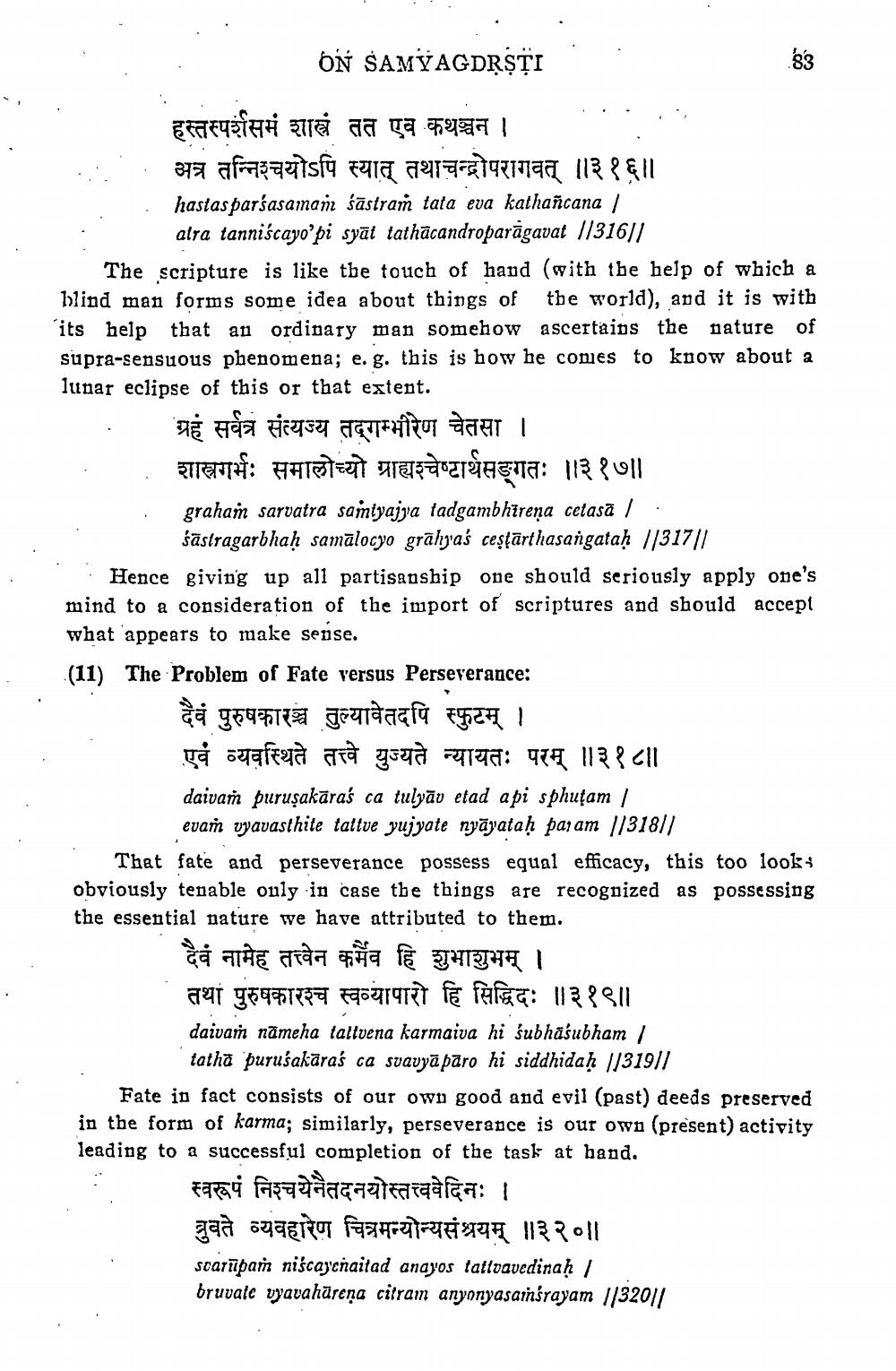________________
ON SAMYAGDRSTI
हस्तस्पर्शसमं शास्त्रं तत एव कथञ्चन ।
अत्र तन्निश्चयोऽपि स्यात् तथाचन्द्रोपरागवत् ॥३१६॥ hastas paršasaman śāstram tata eva kathañcana /
alra tanniscayo’pi syāt tathācandroparāgavat ||316)/ The scripture is like the touch of hand (with the help of which a blind man forms some idea about things of the world), and it is with its help that an ordinary man somehow ascertains the nature of supra-sensuous phenomena; e. g. this is how he comes to know about a lunar eclipse of this or that extent.
ग्रहं सर्वत्र संत्यज्य तद्गम्भीरेण चेतसा । शास्त्रगर्भः समालोच्यो ग्राह्यश्चेष्टार्थसङ्गतः ॥३१७|| graham sarvatra samtyajya tadgambhireņa cetasā /
Sastragarbhah samalocyo grahyas cestarthasangatah //31711 Hence giving up all partisanship one should seriously apply one's mind to a consideration of the import of scriptures and should accept what appears to make sense. (11) The Problem of Fate versus Perseverance:
दैवं पुरुषकारञ्च तुल्यावेतदपि स्फुटम् । एवं व्यवस्थिते तत्त्वे युज्यते न्यायतः परम् ॥३१८॥ daivan puruşakāraś ca tulyāv etad api sphuţam /
evan vyavasthite tattve yujyote nyāyataḥ pajam 113181/ That fate and perseverance possess equal efficacy, this too looks obviously tenable only in case the things are recognized as possessing the essential nature we have attributed to them.
दैवं नामेह तत्त्वेन कर्मैव हि शुभाशुभम् । तथा पुरुषकारश्च स्वव्यापारो हि सिद्धिदः ॥३१९।। daivan nämeha taltvena karmaiva hi śubhāśubham /
tatha puruśakāraś ca svavyā pāro hi siddhidaḥ 11319// Fate in fact consists of our own good and evil (past) deeds preserved in the form of karma; similarly, perseverance is our own (present) activity leading to a successful completion of the task at hand.
स्वरूपं निश्चयेनैतदनयोस्तत्त्ववेदिनः । ब्रुवते व्यवहारेण चित्रमन्योन्यसंश्रयम् ॥३२०॥ svarīpam niscaycñaitad anayos tatlvavedinaḥ / bruvale vyavahāreņa citram anyonyasainsrayam 1/32011




